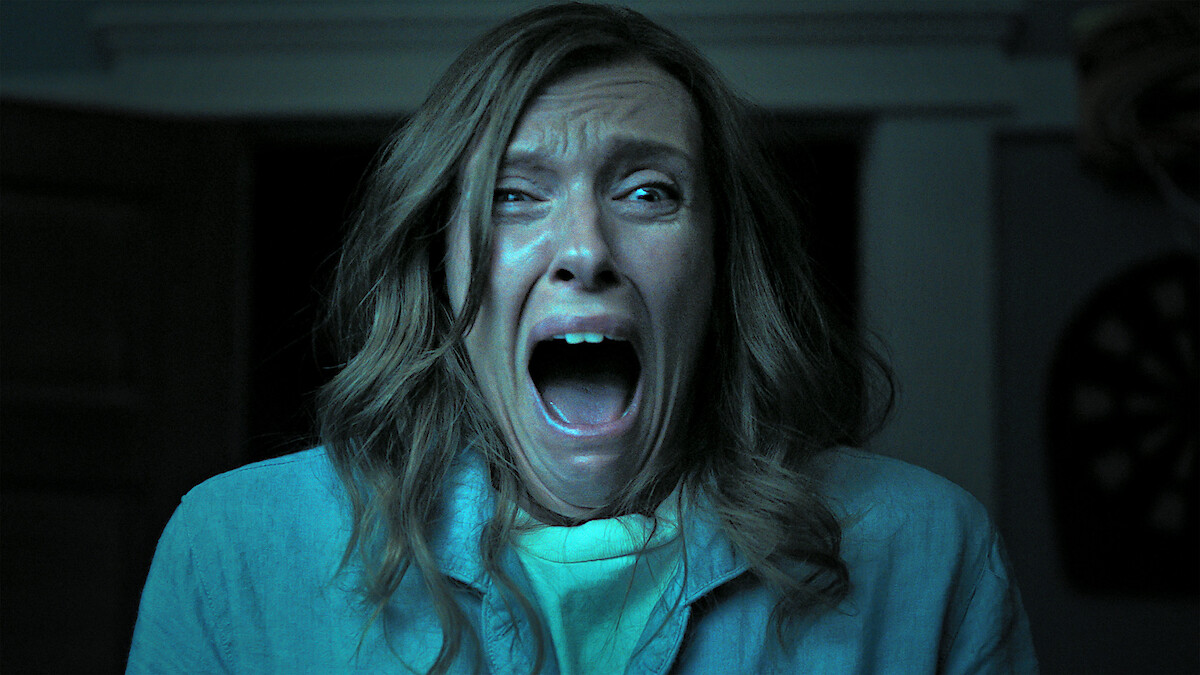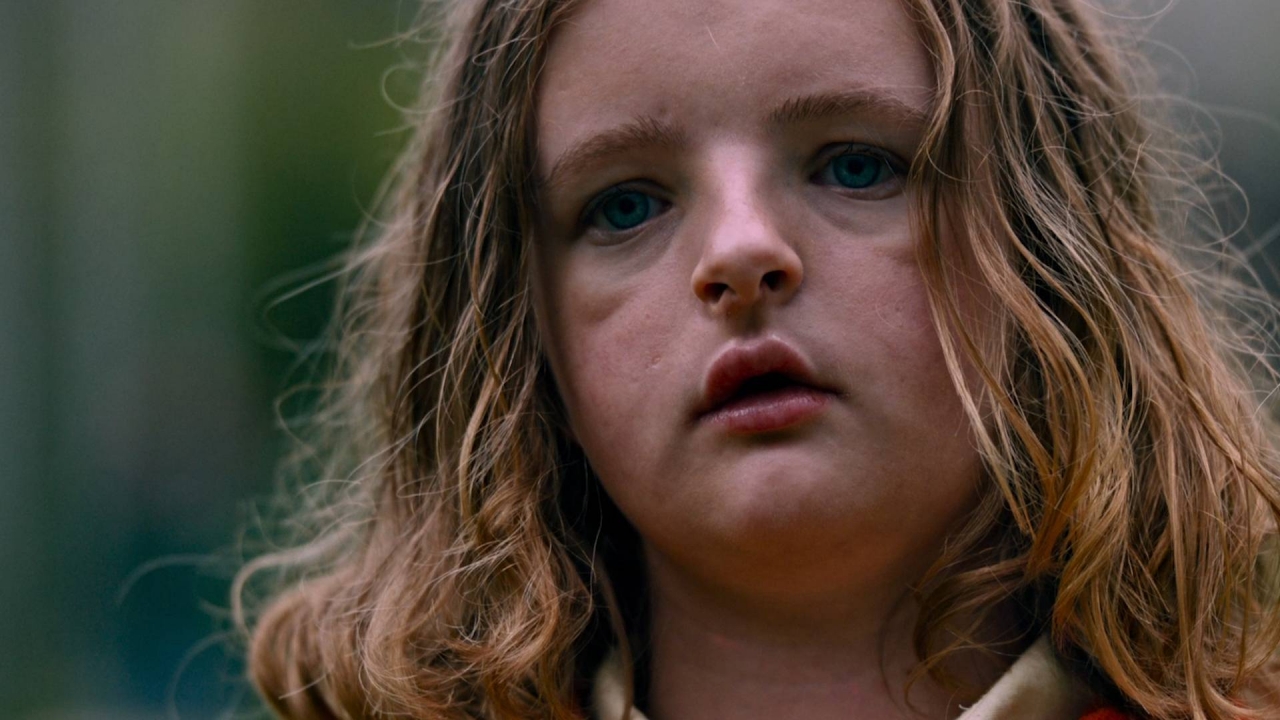Directed by Ari Aster in his stunning feature debut, Hereditary (2018) is not your typical horror movie. It is a deeply unsettling exploration of family, grief, mental illness, and generational trauma, dressed in the terrifying skin of supernatural horror. With haunting performances, unsettling imagery, and a relentless descent into darkness, Hereditary leaves viewers disturbed long after the credits roll.
Aster’s film takes its time building dread, twisting its domestic drama into something far more cosmic and demonic, yet always grounded in emotional truth. In the world of Hereditary, the true horror isn’t just what lurks in the shadows — it’s what we pass down to those we love.
The film opens with the funeral of Ellen Leigh, the estranged and enigmatic grandmother of the Graham family. Her daughter Annie (Toni Collette), a miniatures artist, gives a hesitant eulogy, hinting at a complicated and secretive past. Annie’s husband Steve (Gabriel Byrne) tries to keep the family together, while teenage son Peter (Alex Wolff) and odd, isolated daughter Charlie (Milly Shapiro) grieve in their own ways.
It’s not long before tragedy strikes again. Charlie dies in one of the most shocking and horrifying scenes in recent horror history — an accident that shatters the family and triggers Annie’s emotional breakdown. As Annie’s grief turns to obsession, she begins to uncover terrifying secrets about her mother’s past — involving occultism, spiritualism, and a demonic cult with sinister plans for her family.
What begins as a story about loss and coping spirals into a supernatural nightmare, as Annie realizes her family may be pawns in a terrifying ritual involving a king of Hell named Paimon, and that her children may never have had a choice in their fate.
The title Hereditary refers not just to family genetics, but to psychological and spiritual inheritance. The film suggests that trauma — both emotional and metaphysical — can be passed down like a disease. Annie fears she’s inherited mental illness from her mother, and fears even more that she may pass it on to her children. The horror isn’t only external — it’s internal, born of DNA and destiny.
The film also explores grief as a transformative force. Annie’s sorrow fractures her reality, and it becomes unclear whether her supernatural experiences are real or the result of a psychological breakdown. Ari Aster weaponizes grief, showing how loss can open the door to irrational belief and horrifying vulnerability.
Toni Collette gives one of the greatest horror performances of all time. As Annie, she navigates a vast emotional range — from restrained sorrow to unhinged rage to soul-ripping despair. Her portrayal of a woman on the edge of a breakdown is raw, terrifying, and heartbreaking.

Alex Wolff is equally powerful as Peter, especially in the film’s second half. His facial expressions and body language capture the trauma of guilt and helplessness in a world gone insane.
Milly Shapiro, as Charlie, makes a lasting impact despite limited screen time. Her presence lingers long after her death, becoming a haunting symbol of the family's descent.
Ari Aster directs with cold precision. The film is filled with symmetrical framing, long static shots, and uncomfortable close-ups that make every moment feel claustrophobic. He lingers on silence and shadows, creating a suffocating sense of dread without relying on cheap jump scares.
The set design — particularly Annie’s miniatures — becomes a metaphor for control, or the illusion of it. The Graham house is like a dollhouse, and its inhabitants are just pieces being moved by unseen hands.
The sound design and Colin Stetson’s eerie, droning score are integral to the atmosphere. The sound of Charlie’s tongue-click becomes a horrifying motif, and the growing hum of something unseen builds unbearable tension.
Hereditary is filled with clues and symbols that reward repeat viewing. From Paimon’s sigils to hidden figures in the dark, every frame contains meaning. Early scenes subtly set up later horrors, like the use of decapitation, the presence of cult members in the background, and Annie’s artwork mirroring events before they happen.
The final act — a fever dream of levitation, possession, and ritual — is both grotesque and operatic. As Peter becomes Paimon’s new host, the film ends not with resolution but with a perverse coronation, suggesting that all of the suffering was orchestrated long before the story even began.

Critics lauded Hereditary for its bold storytelling, direction, and Collette’s performance. It became an instant classic for fans of “elevated horror,” often compared to The Exorcist and Rosemary’s Baby. However, general audiences were more divided, with some put off by its slow pace and ambiguous ending.
Yet for those who connected with its tone and depth, Hereditary is unforgettable — a film that lingers like a nightmare you can’t shake.
Hereditary (2018) is not just about demons, cults, and death. It’s about family, pain, and the legacies we can’t escape. Ari Aster’s debut is both intimate and epic — a personal tragedy disguised as supernatural horror.



-1750907216-q80.webp)

